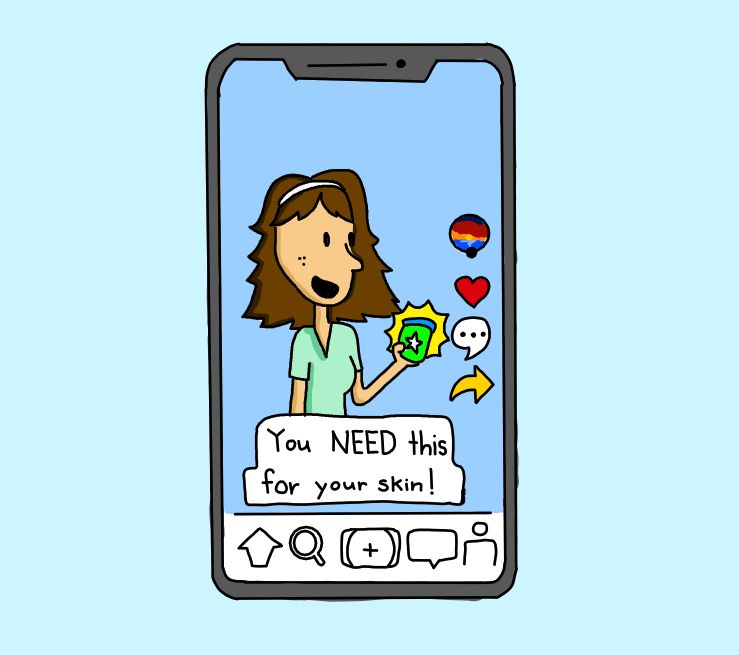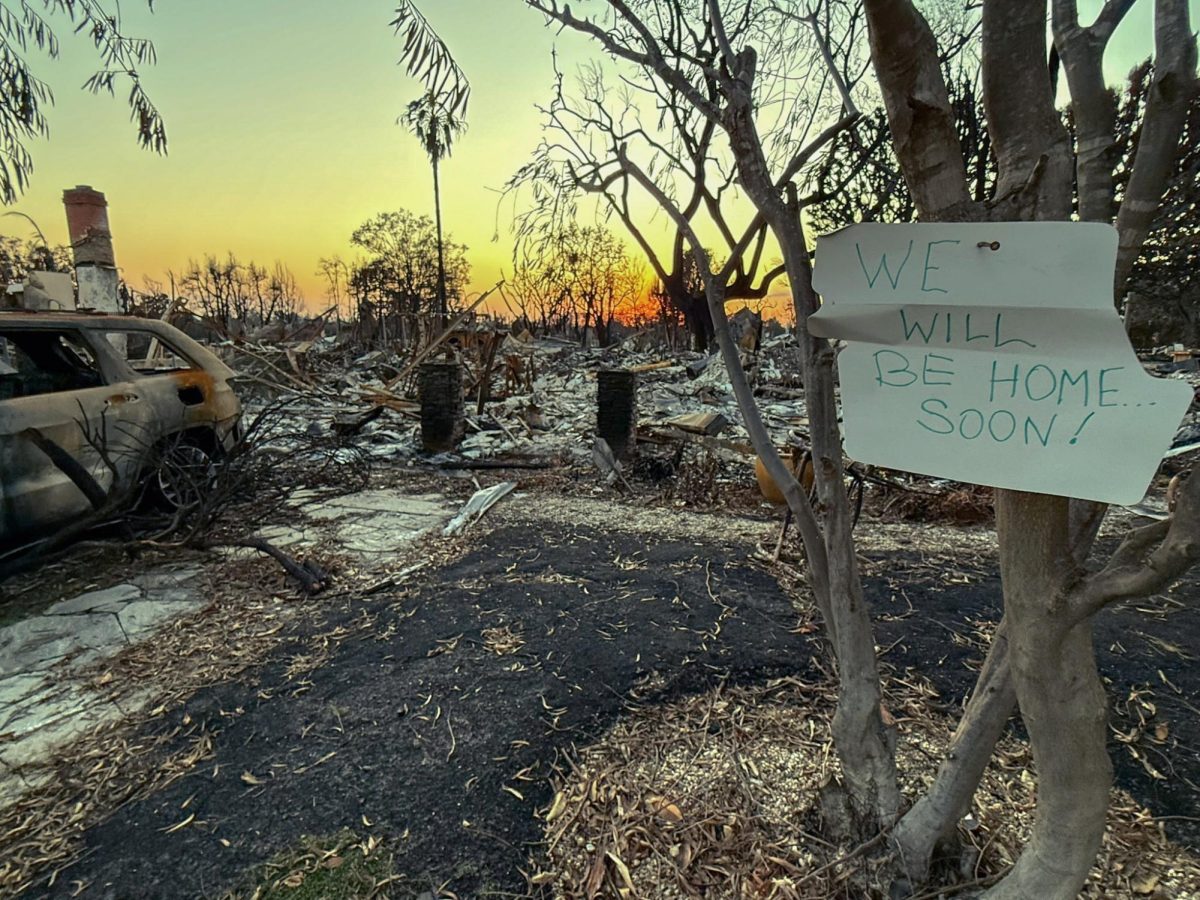Misinformation on TikTok is a Bloody Shame
February 14, 2023
With the increasing ubiquity of TikTok and its growing user base of reaching one billion, more people are bearing witness to the strange and alarming health and beauty trends that plague the app. This raises the question: should TikTok be considered a wise older sister or an untrustworthy frenemy when it comes to advice?
Some of the outlandish trends that have caught the eye of young, impressionable audiences on TikTok include menstrual blood face masks, claims that fluoride in water and toothpaste causes neurological harm and “dry scooping” protein powder. Though these are relatively minor pieces of misleading advice, they are noticeable examples of social media’s ability to perpetuate misinformation, an issue that can negatively impact users’ health.
A logical person might question how anybody could believe these unconventional pieces of advice. For example, is there any evidence at all to substantiate the assertion that there are stem cells in menstrual blood that have health benefits when applied to the face? Probably not. Yet there exists a myriad of videos of people experimenting with this unorthodox trend and boasting their resulting “glowing skin.” In one such video, a woman with the username of @sophielovecoach said, “I was about to put my period blood on my face for a face mask and then I remembered that the plumber is coming over, and I just totally dodged a bullet.” If you aren’t comfortable with someone seeing you in the mask, it’s probably a sign to re-evaluate your options.
On TikTok, “holistic” health coaches, gurus, “dermfluencers” (dermatology influencers) and regular users have the freedom to offer advice on any topic, regardless of whether they have any relevant qualifications or expertise. When they promote these bizarre trends or ideas, these influencers ensure that they stay relevant and seem to operate under the assumption that “any attention is good attention.” In terms of health and wellness trends, it seems that TikTok audiences enjoy a collective obsession over these trends. This connects to the issue that users would rather see advice or trends that are outrageous or far-fetched instead of trustworthy and reasonable.
The app and its users are equally at fault because TikTok fails to implement consistent filtration or fact checks on the information being circulated around billions of “For You” pages. When any blame is put on the app, the company can easily hide behind out-of-date laws like Section 230 of the Communications Decency Act, which prevents social media corporations from being held accountable for the content uploaded to their platforms.
Susan Ackerman, the health education teacher at Pali, said that she thinks misleading information on apps like TikTok is a significant issue for teens.
“People are not doing their due diligence to see what is legit and what is not. With TikTok’s less than a minute videos, no one wants to sit and watch the video asking if this is legit,” Ackerman said. “There’s a lot of junk out there that isn’t backed by research or the research is done by the company that made the product.”
Ackerman also said that she was especially wary of COVID-19 vaccine misinformation and felt she couldn’t rely on social media for medical advice about the shot. “I went to my friends who are PhDs in microbiology and immunology. I called them up and was like, ‘what do you think?’ And I trust their opinion. I just didn’t trust social media and it’s good for people not to trust it. I think we should have a healthy cynic in this situation.”
She also said she thinks teens should not have such excessive access to social media, stating: “I really believe social media should be banned under the age of 18. It should be treated like alcohol and drugs because it is addictive.”
Ackerman also said that she believes companies like TikTok have no incentive to implement regulatory and preventative systems that review the information on the app.
This is likely because they thrive off of the disarray because viralness equates to profit. This is a disheartening concept because it reveals that the people behind these companies would prefer to sit back and watch or even empower the spread of misinformation for their benefit instead of realizing the issue it has created and the rift that it forms between people. The process of controlling misinformation on the app is a burdensome one for the company because it can be labor and time intensive.
In a statement on the TikTok website about the ways they are “tackling” misinformation, the platform claims that a user can easily report misinformation with a new “in-app reporting feature.” They also vow that these reports are given high priority in their internal Taskforce and third-party fact-checkers.
Although they may insist they are dedicated to this, I tested this system a number of times when I reported vaccine misinformation. There was never any action taken since the ninety-weeks-ago timestamp and no response info attached to the report.
Sophomore Isabella Karimi said she believes misinformation is an issue that needs to be addressed, but that the app has the potential to be reversed into a tool for spreading accurate news and reliable advice.
She said she has taken away valuable information from TikTok videos that aimed to make viewers aware of how to stay safe at a party and identify the signs that a drink has been spiked.
I definitely believe TikTok is capable of using its influence for the better, but in the eyes of the app, taking the moral high ground is not worth the effort, time or trouble. The app has gone so far in one direction with the increasing prevalence of misinformation that it now requires prohibitive legislation as a lifeline. It is time that this issue be confronted so that the mass divisiveness and confusion it has caused can come to an end.













